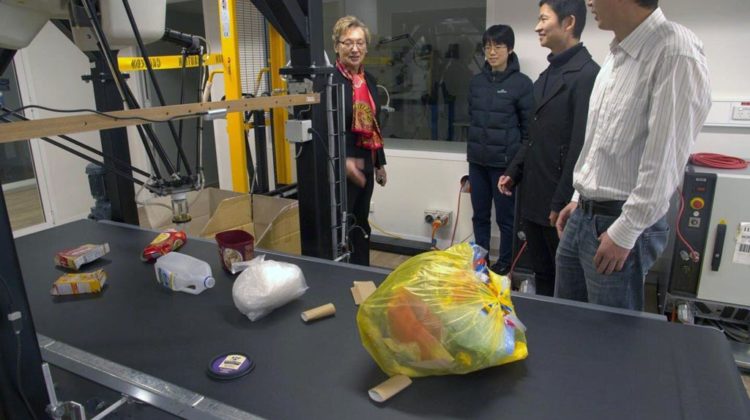
A team of researchers at the University of Sydney is hoping to increase the amount of soft plastic that’s recycled by developing a smart, automated robotic system that uses AI to sort recyclable waste.
In Australia, about 94 per cent of soft plastics such as cling wrap and plastic bags went to landfill in 2016–17, primarily because they are difficult to recycle. Because they easily get entangled in waste-separation machinery, leading to mechanical failure and contamination of other recyclable materials such as paper, current recycling methods rely on the manual sorting of soft plastics, an often repetitive and unsafe task.
‘The recycling robotic automation system will use artificial intelligence and computer vision to learn how to identify different forms of recycling waste, effectively learning how to “see” and “sort” waste, to create separate waste streams and maintain soft plastics’ purity so they can be recycled,’ said Professor Branka Vucetic, an Internet of Things (IoT) expert at the university.
‘Soft plastics are a big contributor to landfill and have long been a challenge for the circular economy and waste management sector as they have lacked an adequate and safe sorting method. Using the latest IoT techniques, we have created a custom robot to solve this issue,’ said Professor Yonghui Li.
The system will be integrated into a material-recovery facility run by waste-management company IQ Renew as part of an Australian initiative known as CurbCycle, which involves the household collection of recyclables that have been segregated into different bags.
‘Not only does our project divert household soft plastics from going to landfill, by creating a solution for the collection and sorting of waste with our industry and research partners, we’re also creating a sustainable supply chain that takes rubbish from households to end markets,’ said Associate Professor Wanli Ouyang. ‘The robot will identify “CurbyTagged” bags and differentiate sources of plastic, separating soft plastics from the fully co-mingled recyclables.’
Once they have been separated from other waste, the soft plastics will be used for a variety of purposes, including advanced recycling into oils and other valuable chemicals.
The researchers are now working with a number of waste-management companies to develop the system.


